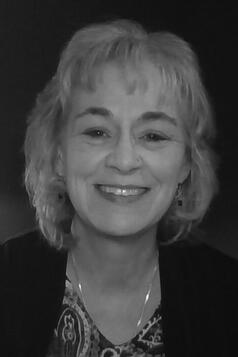 A girl used to take workbook photocopies out of the scrap paper bins at school and play school in her backyard. She would set up folding chairs, picnic table benches and invite the neighborhood children over. The children would be the students, and her the teacher. Professor Campbell wanted to teach since childhood. She had a natural curiosity that fueled her passion for learning. So, how did she end up in public relations? Campbell said it’s due to her sideways approach to her career. She decided to pursue a degree in communications after being told not to go into teaching. After her bachelor's, she earned a master's in advertising. Finally, at age 21, it was time to find a job. Campbell started as a scriptwriter for a company that manufactured tanks and other military-grade equipment. She still remembers her friend's mother's comment about her first job. “Here I was, this young 21-year-old excited about her new job, and my friend’s mom looks at me and goes, ‘You work for a company that sells death.’ I mean, what do you say to that?” It wasn’t teaching, but it was something. Something that provided Campbell an outlet to learn, and that’s what she did. Learning to advocate for herself She worked in the photo lab, processed film and worked with technology right as it was emerging. Not only did Campbell pick up skills to add to her PR toolbox, but she also learned how to face conflict in a male-dominated workspace. There were times Campbell had to stand up being a young woman fresh out of college, a natural-born introvert and working at a mostly male business. She surprised herself in those moments when she decided to fight instead of fly, Campbell said. She was brought up with a strict code of ethics where knowing right from wrong was the gold standard. However, Campbell said there was a point in time at the company where she had enough. “A few times somebody pushed on me and took advantage of me at work, and I finally stood up for myself and it stopped. Sometimes you got to push back,” she said. “Sometimes, you have to punch a bully, figuratively speaking.” Enjoying her work Her favorite job, besides teaching, of course, was when she worked for the American Red Cross as the communications director. “I really liked the Red Cross because we made a difference. At the end of the day, I wasn’t pushing papers or trying to sell people concepts. I worked for a place that was out there feeding and clothing people who needed help.” Her ethics from childhood and a willingness to expand her understanding of communities left her with an appreciation for nonprofits, Campbell said. She explained what nonprofits did through a parable about a boy saving a starfish. As the boy threw them back into the sea one by one, a man came up and told him he couldn’t save them all, that there were thousands of them. The boy replied, “It made a difference to this one.” “That’s what a nonprofit does,” Campbell said. “You can’t save them all, but you can save some.” Connecting with a mentor She was able to make a difference in people’s lives by working for a nonprofit, Campbell said. The person who made a difference in her life was Betty Pritchard. They met at Grand Valley State University when Campbell was hired as a teaching affiliate. Pritchard was a prim, proper, doctorate and sat on the PRSA National board in the late 90s and early 2000s where she rewrote a few of its rules. She was respected by everyone, Campbell said. “Over the years, she would give me advice, like ‘step up’ and ‘don’t be afraid.’ It was just that woman-to-woman comradery,” she said. “She was an accomplished woman with published work, had her doctorate before I even dreamed of getting mine…I don’t think she sweated. I don’t think she had the capability.” Now, Campbell has her doctorate in education and works as an adjunct professor at Kent State teaching sports and media, sports and society, sports in film and public relations publications. With new technology and keeping up with students in her classes, she said that teaching is exciting and “electric.” “People would say if you love what you do it’s not a job, and I thought that was corny,” Campbell said. “But no, no, no. It’s absolutely true.”
0 Comments
Leave a Reply. |
Archives
February 2024
Categories
All
|
 RSS Feed
RSS Feed
